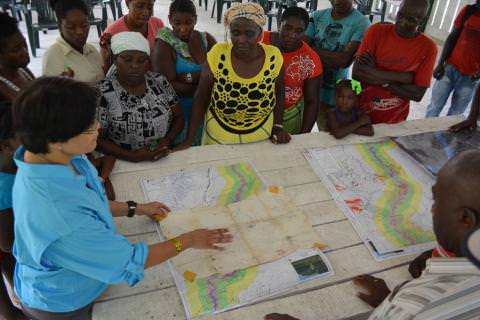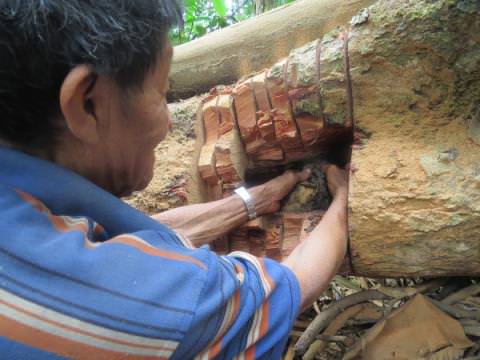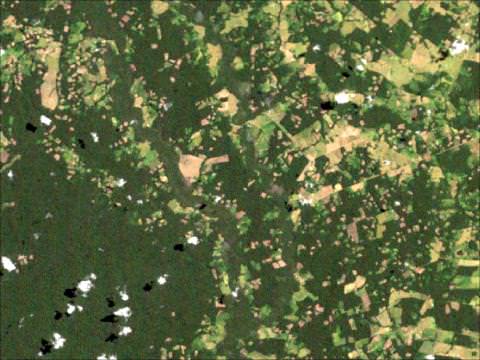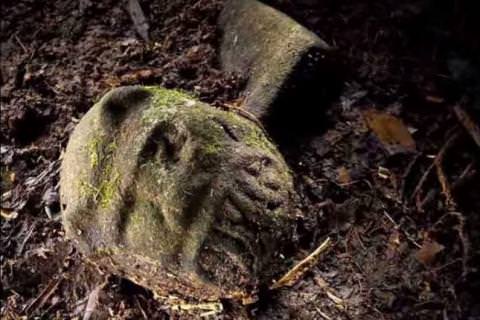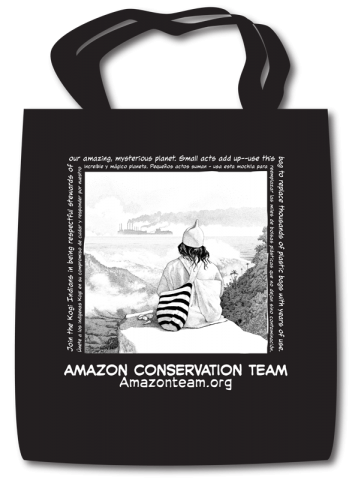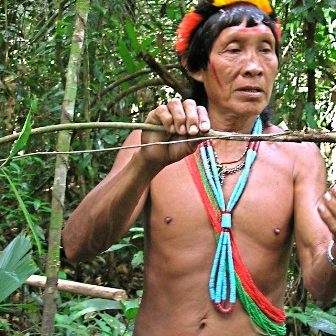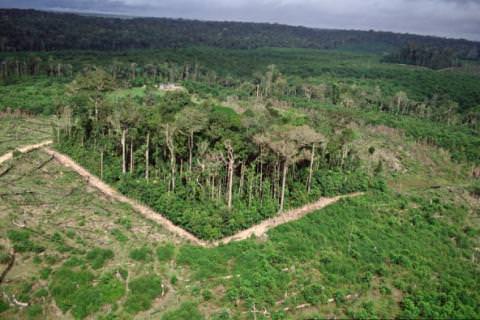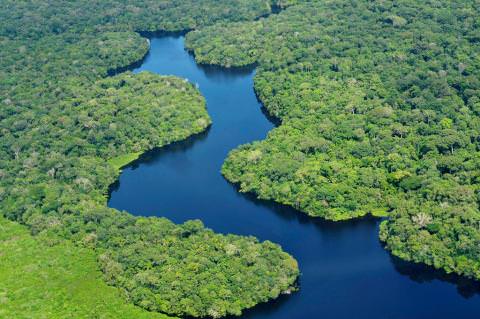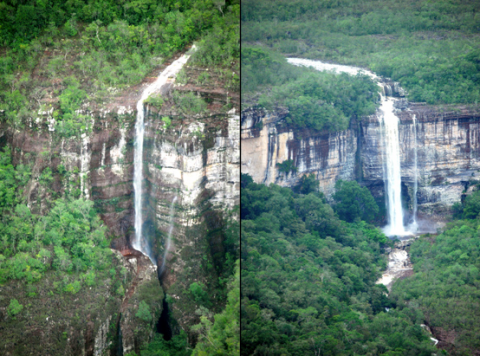News
Participatory Mapping Work Begins With the Matawaai
In February, Rudo Kemper (Amazon Conservation Team), Niradj Hanoeman (ADEK University student), and Keeng Koemoe (an indigenous cartographer from Kwamalasamutu) traveled to the upper Saramacca river in Suriname for one month to commence a two-year participatory mapping project with the Matawaai maroon people.
Read MoreACT-Suriname Begins Honey Harvesting Project
Bruce Hoffman, Manager for Field Projects of ACT Suriname, is working with the indigenous community of Kwamalasamutu on a project to raise and keep stingless forest bees (Meliponidae) and harvest their honey. This non-timber forest product is a potentially valuable source of sustainable income, and is both tasty and medicinal.
Read MoreACT GIS team travels to Belem, Brazil for deforestation analysis training
This January, ACT’s GIS (geographic information systems) team composed of Brian Hettler, Santiago Palacios, and Rudo Kemper traveled to Belem, Brazil to follow a week-long training on cutting edge remote sensing technologies. The training was conducted by Carlos Souza, Jr. and João Siguera from Imazon, one of our Skoll Foundation partners and a leading authority…
Read MoreMeet ACT’s Newest Corporate Sponsors
Several corporations around the United States recently began supporting ACT with generous in-kind donations. Our field staff now sport KEEN shoes, sleep in Eagle’s Nest Outfitters’ hammocks and use Rite in the Rain all-weather notebooks. We are working to increase these partnerships to supply our colleagues with the equipment they need to be safe and effective in their fieldwork. To see the full list of ACT’s corporate sponsors, click here.
Read MoreDr. Mark Plotkin Goes In Search of Lost Cultures
Mark Plotkin (ACT) accompanied a team of scientists and filmmakers led by Steve Elkins and Bill Benenson to a remote portion of the Honduran rainforest believed to harbor the ruins of an ancient city. The team found several archaeological sites of great promise. Since the expedition, the president of Honduras has issued a declaration protecting the area.
Read MoreNow available: limited edition Kogi tote bag created exclusively for ACT
Donate $500 today to receive a limited edition tote bag created exclusively for ACT. This tote, illustrated and designed by award-winning author and illustrator Janell Cannon, features an image of Kogi Mamo Shibulata. Cannon collaborated with the Kogi people on the drawing, which illustrates environmental dilemmas that challenge the Kogi, as well as the entire world.
Read MoreSocial entrepreneurs dare to change the world
Editor’s note: This is the first in a series of CNN Opinion pieces on people who are finding new ways to help solve the world’s biggest problems. The founding president of eBay, Jeff Skoll is a philanthropist and founder and chairman of the Skoll Foundation, Participant Media and the Skoll Global Threats Fund, organizations aiming to help build a sustainable world of peace and prosperity. Sally Osberg is President and CEO of the Skoll Foundation, which produces the Skoll World Forum on Social Entrepreneurship.
Read MorePioneering Amazon Biologist (and ACT Board Member) Dr.Tom Lovejoy
Ecologist Thomas Lovejoy tucks his trousers into his socks with a casual warning about chiggers and then hikes off into the Amazon jungle. Shaded by a tall canopy and dense with ferns and underbrush, the old-growth forest looks healthy, but Lovejoy knows better. Three decades ago, the surrounding forest was mowed down and torched as part of a research project, and the effects have spread like a cancer deep into the uncut area. Large trees have perished.
Read MoreDr. Mark Plotkin on WNYC
Ethnobotanist Mark Plotkin, founder of the Amazon Conservation Team, talks about the “uncontacted,” isolated groups living deep in the South American forest resist the ways of the modern world. He’s featured in the article “The Lost Tribes of the Amazon,” by Joshua Hammer, in the March issue of Smithsonian magazine.
Read MoreColombia to Double the Size of Massive Amazon Reserve
Colombia may more than double the size of the remote and poorly-known Chiribiquete National Park to make it the biggest protected area in the Colombian Amazon, reports El Espectador.
Under a proposal laid out last year, Colombia’s national park service is slated to expand Chiribiquete to about 3 million hectares, up from its current 1.3 million hectares.


